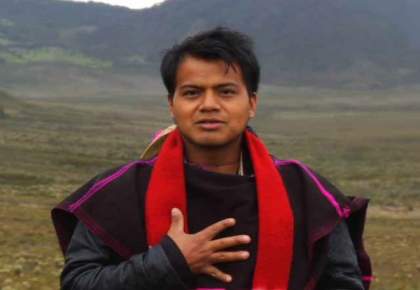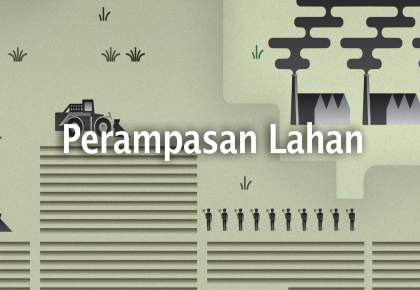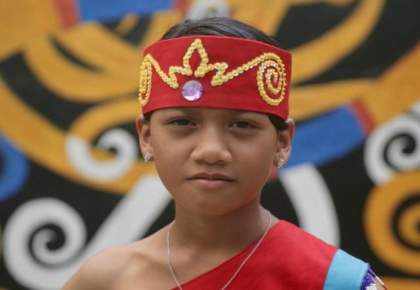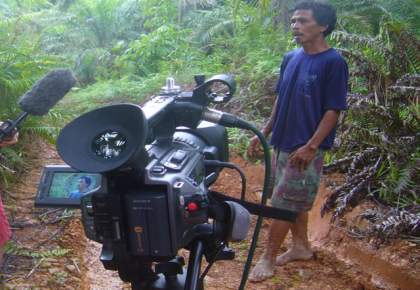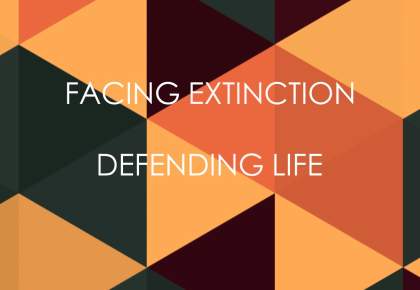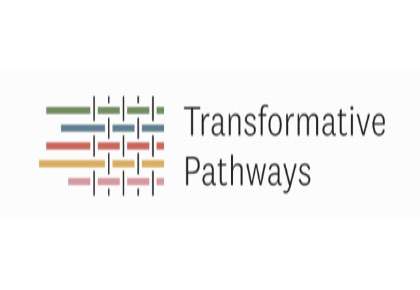Next Generation Leadership
-
Background
Imagine a future when Indonesia’s indigenous peoples and local communities have secure rights to their territories and are able to sustainably manage their territories, forests and resources. Imagine a time when these communities have revitalised their cultures, improved their livelihoods, and are determining their futures, free from human rights abuses; divide and rule tactics; and fear of losing their lands.
This transformation will require, among other things: policy changes; legal challenges; fairer spatial planning; more equitable and sustainable rules for extractive industries, plantations and markets; behavioural change; and stamping out corruption. This work will need to be supported, as it is now, by lawyers, academics, researchers, artists, activists and others.
However, for such a deep systemic transformation to come about and to be genuinely implemented on the ground, it will need to be led and defended by confident, resilient grassroots movements for social and environmental change. Over the next years and decades, existing Indonesian movements will need to step up their work of designing and demanding change, creating inspiring community-led alternatives, as well as continuing to defend community territories and rights.
At present a relatively small pool of activists and community leaders are attempting to address the ever-greater problems faced by Indonesia’s communities and ecosystems. Overworked, overwhelmed and drowning in a constant torrent of environmental destruction and human rights abuses, many activists and leaders are either burning out, selling out, or dying young.
For the movements to become stronger and more resilient, they will need to create the conditions that allow the emergence of many more community leaders, leaders with integrity, critical analysis, vision and skills who can facilitate their communities to determine their futures and defend their rights.
Leadership and Popular Education
Communities, forests, and movements for positive social and environmental transformation face unprecendented challenges around the world. A global rush for ever scarcer resources, the risks of breaching multiple planetary boundaries which enable human life on Earth, increasing inequality, and the loss of biological and cultural diversity, create the conditions for future social and environmental collapse.
Top-down leadership, prevalent across business, government and civil society, is failing to addresses the complexity of today’s social and environmental problems. So-called ‘heroic’ leadership fails because individuals are incapable of solving systemic crises; and because people who put all their trust and hope in heroes often give up on their own capacity to lead and to change the world.
At the same time customary indigenous leadership and leadership systems are often under severe strain because of rapidly changing external circumstances including the loss of land; centralising institutions; high speed communications and transport systems; and pressures from aggressive large-scale developments. The hand-over of indigenous leadership to a new generation is at times hindered by external cultural influences on the young; outmigration; restricted youth and women’s roles in customary institutions; and a lack of intergenerational trust.
Top-down heroic leadership has been found wanting. Indigenous leadership systems have much to offer, but are under strain from rapid change. There is a need for transformative, participatory leadership that allows the emergence of collective wisdom, to help solve the systemic problems that humanity faces.
Renewing leadership requires an analysis of the nature of power, making a choice between authority-based and collaborative systems. Movements for social change need to develop a vision of the future to understand the kinds of leadership they need to move towards this vision.
A transformative approach means leadership does not need to be about handing out orders, but can focus on facilitating others to contribute and participate to the best of their abilities. Leadership need not be limited to a select few, instead everyone can develop leadership skills and qualities. Finally leadership is not limited to indivuals, and it is important to recognise and nurture collective leadership by organisations, networks and movements.
For indigenous peoples, renewing leadership does not mean re-inventing governance systems and institutions, but reviewing and revitalising them. Any changes need to come from within, recognising what is already there, and what isn’t, looking at what has worked and what hasn’t, and evaluating how institutions and customary laws are dealing with changing circumstances.
Most of these ideas on renewing leadership are simple and have existed for thousands of years. Many have been central to traditional leadership ideals in many indigenous societies. Nonetheless putting transformative leadership into practice requires the thoughtful and profound transformation of individuals, social relations and institutions.
Supporting the Next Generation of Young Leaders
Through this programme, we are creating and hosting unique trainings for indigenous youth, focused on awakening their calling to defend their territories and providing them with the skills to facilitate participatory processes grounded in their own cultures. This work supports the emergence of a new generation of grassroots community leaders, movement-builders, and agents of change and to support communities to vision and put into practice their self-determined development.
Up until now we have tested and shared over 75 methods for participation. Many of these methods that we have been developing are from indigenous peoples themselves, including rituals, eating together, traditional games and poetry, and traditional approaches to tracking. Other methods are from the Misak, Paulo Freire, landless movements, Theatre of the Oppressed, Theory U, Art of Hosting, Joanna Macy, Thich Nhat Hahn, Nature Connection games, and other sources. The methods used include social analysis before trainings, circle, world café, songs, harvests, talk-shows, soul circle, river of life, poetry, collective art, group shelter building, overnight forest meditation, role-play, night market, collective mind map, shared declaration writing, and methods that make the trainings rich and vibrant.
Our work on Leadership and Popular Education:
In Indonesia we are working on developing long-term training programmes for young indigenous leaders, where they learn from each other, their own cultures, best practice from other indigenous peoples and from agrarian movements, popular education approaches; and approaches to participation such as the Art of Participatory Leadership. Breaking out of the constant repetitive workshop cycle, together with our partners, we are working to support young indigenous leaders to find their own calling to protect their cultures, forests and territories, and empowering them with tools and analysis to tackle the complexities of their changing situations.
We are also facilitating shared approaches to leadership and to long-term self-determined community planning between indigenous peoples across the global South.
Book Serialisation
Grassroots Leadership and Popular Education in Indonesia is a new publication by LifeMosaic and The Samdhana Institute. The book is designed to support movements for social and environmental change - in Indonesia and around the world.
Please read the Introduction and Summary, the first chapter of the book to be serialised. The rest of the book will be serialised during much of 2015.
Grassroots Leadership and Popular Education in Indonesia is based on interviews and conversations with dozens of indigenous leaders and elders, activists, educators, and movement-builders, who all identify the need to train more leaders to share in the task of social and environmental transformation. This is a conversation that is taking place across many movements, with ever greater urgency.
The book analyses the difficult context in which Indonesian movements operate; reflects on critiques and challenges facing existing leadership models; presents approaches (such as participatory leadership and popular education) that help to grow and share leadership for systemic change; describes initiatives in Indonesia, the Philippines and Latin America that can inspire leadership training programmes; provides suggestions for learning needs assessments and curriculum development; and makes concrete recommendations to support increased grassroots leadership development.
This book is for grassroots leaders, activists, educators and movement-builders in Indonesia and beyond, for all those participating in systemic change towards a more equitable and sustainable future, with the hope that in these pages there is a spark that gives you energy on your journey.
Please subscribe to our mailing list below to receive the next chapters. And please send comments, critiques and stories to leadership@lifemosaic.net, or leave a comment on facebook and twitter.
.jpg)
Sungai Utik Training
LifeMosaic co-facilitated the Next Generation Indigenous Peoples Leadership Training in Sungai Utik longhouse in March 2014, bringing together over 20 young indigenous leaders from the Philippines and Indonesia, including participants from Sungai Utik itself. This was an event supported by RRI (the Rights and Resources Initiative), hosted by AMAN (The Alliance of Indigenous Peoples of the Indonesian Archipelago) and The Samdhana Institute. The training was designed to help young participants confront the despair of the situation their communities, cultures and territories face, as well as the crisis faced by indigenous peoples globally. Participants engaged in an analysis of the pressures faced by indigenous leadership and leadership systems, and the crises caused by top- down leadership in mainstream society, as well as reflect on alternative leadership approaches. Participants were given the opportunity to find their own vision and mission as young people to act and engage in relation to these multi-dimensional crises faced by their territories, their cultures, and their people.
Declaration
The Sungai Utik Declaration is a statement of intent from more than 20 indigenous young people from the Philippines and Indonesia responding to the call from their ancestors and their territories.
Film
Leaders of The Next Generation is a short film which tells the story of the indigenous youths’ struggles to learn and prepare to become indigenous leaders. The film is made in partnership between AMAN, The Samdhana Institute, and LifeMosaic, with support from RRI.
-
Leaders of the Next Generation
Leaders of the Next Generation
Indigenous youth leaders from Indonesia and the Philippines share their views on leadership, culture and indigenous self determined development. (AMAN / The Samdhana Institute / LifeMosaic, 2014)
-
Next Generation Leadership News
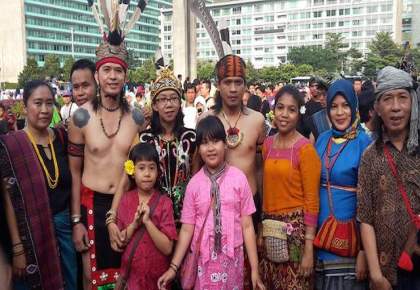
World Indigenous Peoples Day 2016
LifeMosaic took part in celebrations held in Jakarta for World Indigenous Peoples Day.

Territories of Life - Longhouse Screenings
Territories of Life is being screened as part of a three-week residential training with 27 young indigenous leaders from across Indonesia. The training, organised by AMAN / BPAN and LifeMosaic, is being held in a remote Dayak traditional longhouse in Kapuas Hulu, West Kalimantan, Indonesia
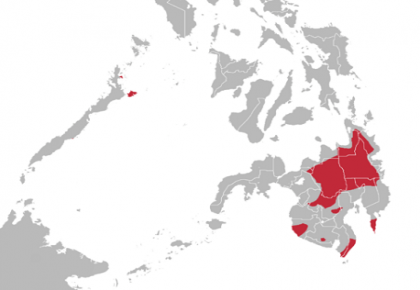
1,000 Ata Manobo kids fail to enroll after DepEd closed IP school
DepEd closes NGO-run school on accusations that it teaches the communist ideology and is strongly supported by the New People’s Army. (Philippines News Agency / interaksyon.com)

Chapter 1 Context and Challenges from Grassroots Leadership and Popular Education in Indonesia
LifeMosaic and The Samdhana Institute are serialising a new book: Grassroots Leadership and Popular Education in Indonesia. This month, Chapter 1: Context and Challenges provides an overview of the unprecedented challenges faced by communities, social movements and ecosystems in Indonesia and around the world.
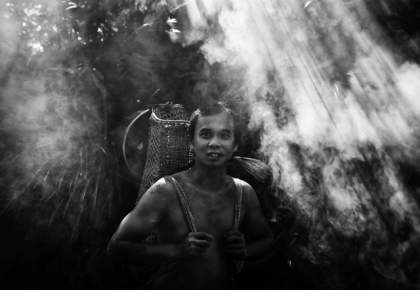
Book Serialisation
LifeMosaic and The Samdhana Institute are publishing a book called 'Grassroots Leadership and Popular Education in Indonesia'. The Introduction and Summary is the first chapter of the book to be serialised.
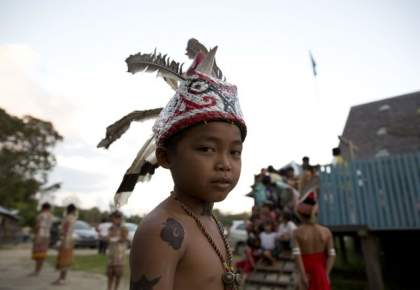
Leaders of The Next Generation
Please watch and share this short film about the 'Next Generation Indigenous Peoples Leadership Training', which took place in Sungai Utik longhouse (West Kalimantan, Indonesia) in March 2014. Languages: Indonesian / English
-
Documents and Downloads
Grassroots Leadership and Popular Education in Indonesia: Introduction and Summary
Grassroots Leadership and Popular Education in Indonesia is a new publication by LifeMosaic and The Samdhana Institute. The book sets out to analyse and recommend ways to support grassroots leadership development and popular education in order to strengthen movements for social and environmental change – in Indonesia and around the world. The book is for grassroots leaders, activists, educators and movement builders in Indonesia and beyond, for all those participating in systemic change towards a more equitable and sustainable future, with the hope that in these pages there is a spark that gives you energy on your journey. Please read this Introduction and Summary, the first chapter of the book to be serialised. (The Samdhana Institute / LifeMosaic, 2015)
- Grassroots Leadership and Popular Education in Indonesia: Introduction and Summary (pdf - 1 MB)
- Chapter 1: Context and Challenges (pdf - 475 KB)
Barefoot Guide: Working with Organisations and Social Change
The Barefoot Guides, bring stories, analyses, approaches and resources of interesting practice from around the globe, each under a key theme. The Barefoot Guide 1 is a practical, do-it-yourself guide for leaders and facilitators wanting to help organisations to function and to develop in more healthy, human and effective ways as they strive to make their contributions to a more humane society. The Barefoot Guide 2 is a resource for leaders, facilitators and practitioners involved in social change who want to improve and enrich their learning processes.
- The Barefoot Guide 1: Working with Organisations and Social Change (pdf - 22 MB)
- The Barefoot Guide 2: Learning Practices in Organisations and Social Change (pdf - 29 MB)
Handbook on Community Engagement
A ‘good practice’ guide to negotiating lease agreements with landowning communities in South Sudan, which also makes a usuful read for communities elswhere (South Sudan Law Society, 2011 )
Other videos
The Sarayaku case
Sarayaku is an indigenous community located in the province of Pastaza, in the Ecuadorian Amazon. Sarayaku ("River of Maize") is inhabited by 1,200 people from the Kichwa nationality. They operate a system of direct democracy. In 2002 the company CGC Argentina (Compañía General de Combustibles), accompanied by the Ecuadorian army illegally entered the territory of Sarayaku and buried 1500 Kg of pentolite, explosives used in seismic exploration for oil. The case was brought before the Inter-American Commission of Human Rights, creating a historical precedent in the defense of indigenous rights. The Constitution and the ILO Convention 169 determined to have prior, free and informed consent of indigenous peoples before starting exploitation. The people from Sarayaku won the case. But as this video will show, the threats to their community are far from over. (Arturo Hortas / Government of Aragon /EJOLT, 2012)
Indigenous Women’s Rights
We live in a time when public opinion is demanding a fairer and more equitable planet. There is no more important element to address this than the equality of men and women. This 4-minute animation video outlines the recommendations from CEDAW (Convention for the Elimination of Discrimination Against Women) and UNDRIP (UN Declaration on the Rights of Indigenous Peoples) particularly on indigenous women that guide and help us to move in this direction. (AIPP, 2013)
Land Grabs: An Animated Guide
In the past decade, more than 81 million acres of land - an area the size of Portugal - have been sold off to foreign investors without consenting farmers and local communities. These land grabs are tearing communities apart and leaving people hungry and homeless. (Oxfam America, 2014)
Story of Stuff
From its extraction through sale, use and disposal, all the stuff in our lives affects communities at home and abroad, yet most of this is hidden from view. The Story of Stuff is a 20-minute, fast-paced, fact-filled look at the underside of our production and consumption patterns. The Story of Stuff exposes the connections between a huge number of environmental and social issues, and calls us together to create a more sustainable and just world. It'll teach you something, it'll make you laugh, and it just may change the way you look at all the stuff in your life forever. (The Story of Stuff Project, 2007)
Related links
The facts are in: nonviolent resistance works
Recently, Columbia University Press published an extraordinary scholarly book that proves how nonviolence works far better as a method for social change than violence. An article by Jon Dear in the National Catholic Reporter.
Mitakuye Magazine
Mitakuye Magazine presents success stories and changemakers from the world of Indigenous People.
Praxis Makes Perfect
A useful list of tools and resources for change agents, community organisers and facilitators. Includes links to resources on facilitation, consensus, outreach, grassroots fundraising as well as a wealth of documents on privilege, power, race, class, gender and environmental justice.
New Organising Institute
This Organizer's Toolbox developed by NOI includes videos, templates and resources for organizing, campaigning and training work. These materials have been developed and refined by organizers in the field, and provide the basic tools necessary to build movement and win real change.
Rhizome Coop Resources
This resource library collated by Rhizome Coop includes documents on facilitation, community organising, mediation and non-violent direct action. It includes resources produced by the group as well as other parties.
Engage Media
An online video sharing site focused on social justice and environmental issues in the Asia-Pacific.
Training links
Training is essential for learning to live, think and become nonviolent in every part of our lives - on a personal and political level. If you're unsure where or how to start, or what to do next, the organisastions listed by Turning the Tide will provide you with a jumping off point.
-





